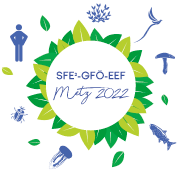|
|
|
Organizers & Speakers > Plenary speakers & Awardees
Plenary speakers:
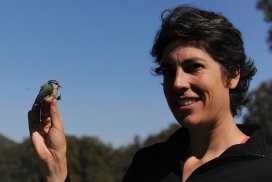
Anne Charmantier, Directrice de recherche at CNRS, Centre d’Ecologie Fonctionnelle et Evolutive (CEFE) CNRS-UMR 5175, Montpellier (France) - Abstract
Anne Charmantier is a researcher that has a very high international reputation in the field of evolutionary ecology. Her main research objective is to understand how organisms adapt to natural environments, and particularly to rapid changes in these environments. She is interested in between-individual variation of life-history, morphological, and behavioural traits in natural populations. She studies the ecological and evolutionary mechanisms underlying variation in these characters, with a special focus on the role of environmental degradation of anthropogenic origin such as climate change and urbanisation. She conducts analyses based on long-term datasets collected in wild bird populations, presently mainly blue tits (Cyanistes caeruleus) and great tits (Parus major) in sites across the Mediterranean. She has a long list of publications and obtained a prestigious grant (ERC) to investigate the extent to which phenotypic and genetic diversity in these wild songbirds is modulated by recent drivers of rapid environmental change (habitat fragmentation and climate), and how it can interfere with processes of evolutionary adaptation.
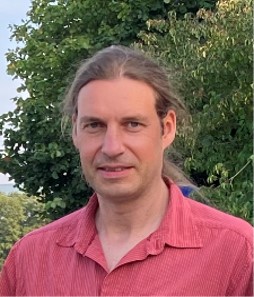
Ralf B. Schäfer, Professor for Quantitative Landscape Ecology at the University of Koblenz and Landau (Germany) - Abstract
Ralf B. Schäfer has 15 years of research experience on the responses of freshwater ecosystems, particularly of microorganisms, invertebrates and ecosystem functions, to anthropogenic stressors. A major focus is the response of freshwater communities to organic toxicants at the regional and larger spatial scales. His working group mainly uses field studies, data analyses and ecological models to detect the footprint of (multiple) stressors in communities, to explain observed patterns and to predict the response. With his work, he tries to bridge the gap between ecological and ecotoxicological research and contributes to advancing chemical risk assessment and freshwater conservation. Ralf has published over 130 ISI-listed publications, including in leading disciplinary and multidisciplinary journals, and about 10 book chapters in the topical area.
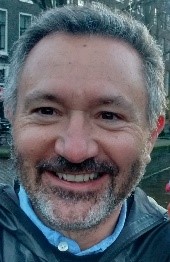
Jordi Cortina-Segarra, full professor at the University of Alicante (Spain) and Chair of the European Chapter of the Society for Ecological Restoration (SER Europe) - Abstract
Jordi Cortina-Segarra is a Biologist (Univ. Barcelona, 1986) and obtained his Ph.D. in Biology at the Univ. Barcelona (1992). He continued his career by a Post-doctoral position at Colorado State Univ. (1992). He was a visiting researcher at FRI (New Zealand), Dept. of Ecology & Environ. Res. (Swedish Univ. Agricultural Sci., Sweden), Dept. Land Manage., Scottish Agricultural College (Scotland), ERI, NAU (AZ, USA), Instituto de Investigación de Recursos Biológicos A. von Humboldt (Colombia) and UNED (Costa Rica). His current research focuses on dryland ecology, including degradation processes and restoration, particularly participatory systematic restoration planning. He has authored 197 papers, including 83 in SCI journals, and currently teaches undergraduate and graduate courses in modelling and restoration ecology. He has supervised 11 Ph.D. thesis and 16 M.Sc. thesis. Further details on his research and teaching can be found at https://imem.ua.es/en/about-us/jordi-cortina-i-segarra.html.
Awardees :
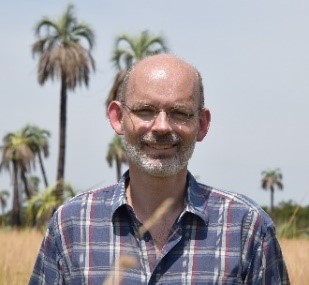
EEF - Jens-Christian Svenning, Professor, Aarhus University (Danemark) - Abstract
Professor Svenning received his PhD in tropical ecology in 1999. He has since then worked broadly in ecology and biogeography, with particular interest in the basic mechanisms underlying biodiversity dynamics and ecological community assembly, biodiversity-climate relations, the ecology and diversity of trees and megafauna, and in human-biodiversity relations from prehistorical times to the future. Given our current Anthropocene challenges and the biodiversity and climate change crises in particular, professor Svenning has coupled his fundamental research to applied research in conservation, restoration and rewilding, and in ecological forecasting and remote-sensing-based monitoring, as well as developed a research agenda on the ecology of the human species and our closest relatives. Professor Svenning is currently director for the Center for Biodiversity Dynamics in a Changing World (BIOCHANGE) at Aarhus University.
GfÖ - Nina Buchmann, Professor of Grassland Sciences, ETH Zurich, Switzerland - Abstract
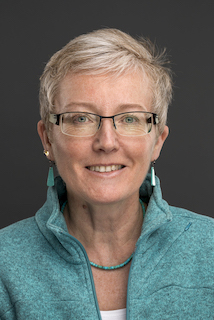
Nina Buchmann is a scientist trained in geoecology (doctorate 1993, Habilitation 1999). Her main research focuses on the process- and system-oriented understanding of plant and ecosystem physiology, functional plant diversity, and biogeochemistry in agroecosystems and forests. In particular, she is interested in the biosphere-atmosphere greenhouse gas exchange, in response to management and environmental drivers, across spatial and temporal scales. Together with her group, she runs the Swiss FluxNet, a network of six flux sites, covering grasslands, cropland, and forests. Thus, her research objects are typically terrestrial ecosystems, which she studies using classical ecological methods as well as stable isotopes and micrometeorology. Nina Buchmann supervised 54 Ph.D. thesis and 42 M.Sc. thesis. She has almost 340 publications which are well received. She is a fellow of the American Geophysical Union (2018), Highly Cited Researcher (2018, 2019), founding member of the Young Academy of Sciences (2000-2005), and she is a member of the German National Academy of Sciences (since 2007). In 2022, she received the Distinguished Alumna Award of the University of Utah, School of Biological Sciences.
Further details can be found at https://gl.ethz.ch/ .
Open lecture:
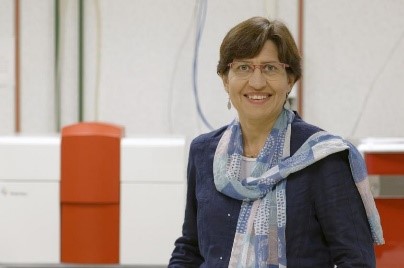
Valérie Masson-Delmotte - Senior Scientist in France’s Laboratory of Climate and Environment Sciences (LSCE) of Institut Pierre Simon Laplace, at the University of Paris Saclay (France)
Valérie Masson-Delmotte is a Co-Chair of Working Group I of the Intergovernmental Panel on Climate Change (IPCC) for the Sixth Assessment cycle. Valérie Masson-Delmotte, trained in fluid physics, has an extensive research background on issues such as quantifying and understanding past climate and water cycle variability, climate information from ice cores, climate response to natural and anthropogenic forcings, climate feedbacks, abrupt climate change, ice sheets and sea level. With 250 peer-review publications, she is one of the most highly cited scientists in the field of geosciences since 2014. She is extremely active in outreach and science communication and has contributed to several books on climate change for children and the general public. Her contributions to science advances have been acknowledged by several prestigious prizes, such as the European Commission Descartes Prize in 2008 for the EPICA project, the Irène Joliot-Curie Prize as Women scientist of year 2013, the Martha T. Muse for Antarctic science in 2015, Nature’s 10 in 2018, the CNRS silver medal in 2019, the European Geophysical Union Milankovicz medal in 2020, and the medal of the President of the Scientific Committee for Antarctic Research in 2020.
